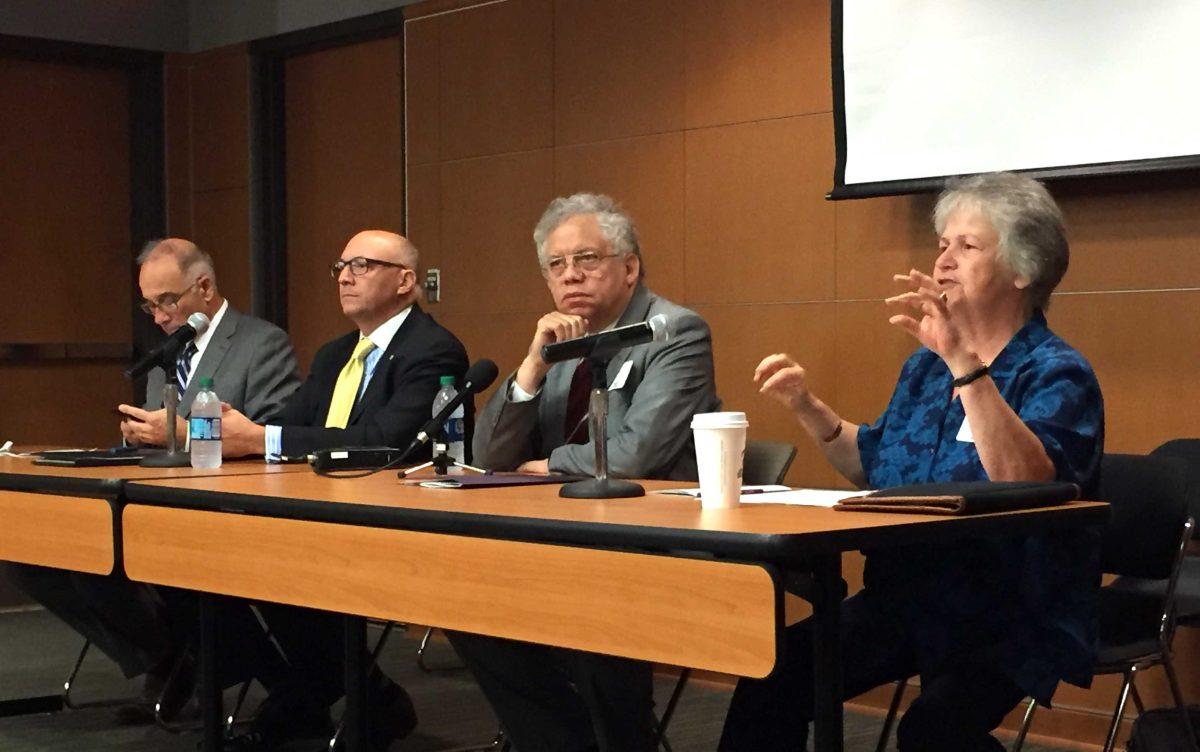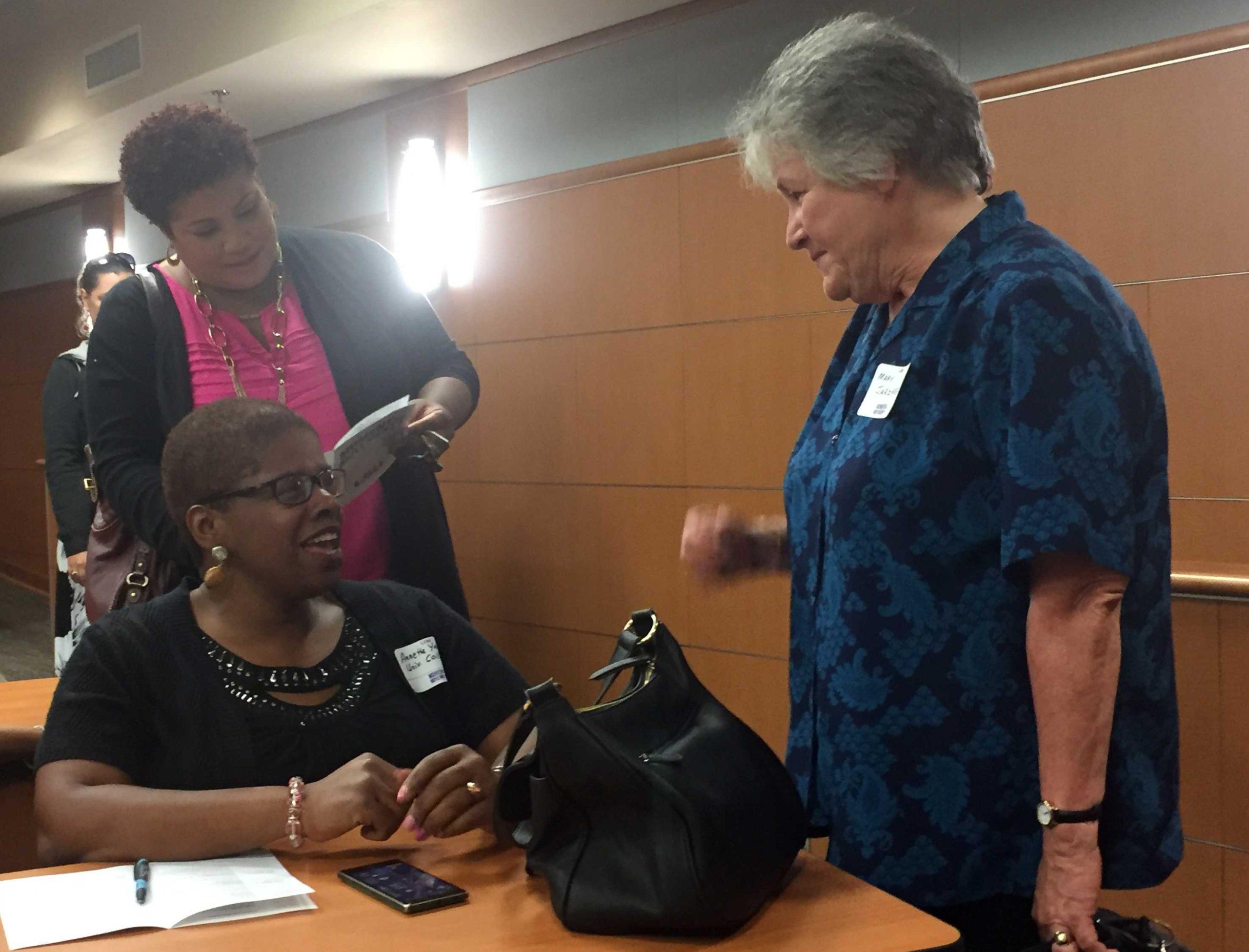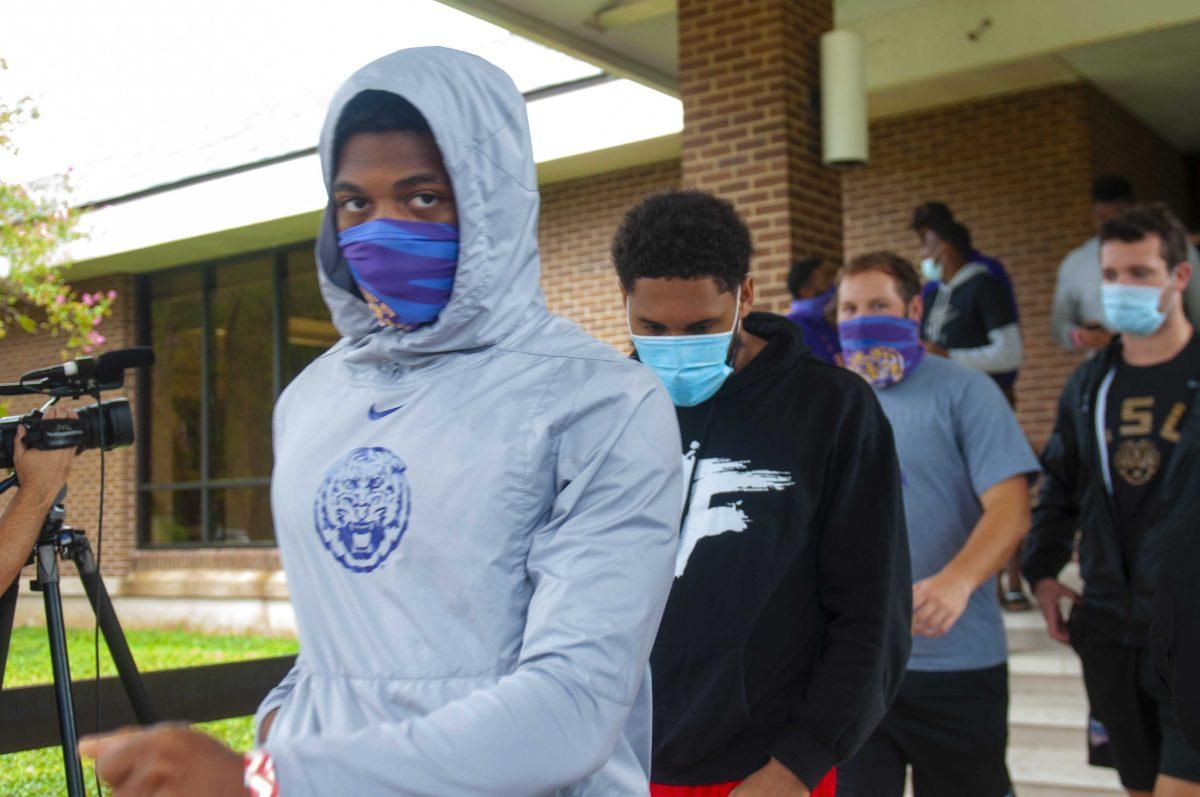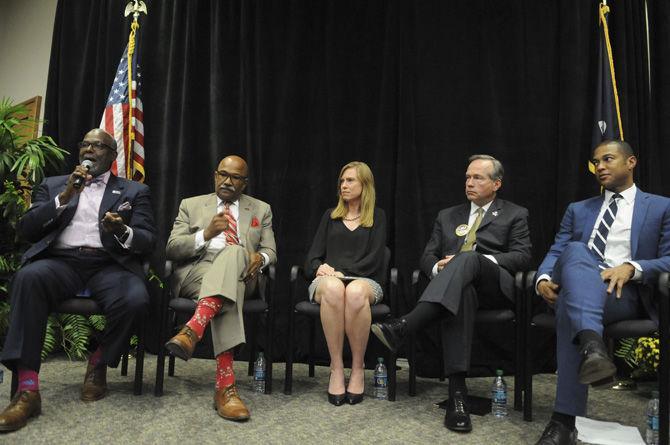Grambling State University associate physics professor Matthew Ware described the struggles of fundraising for small colleges and Historically Black Colleges and Universities (HBCUs).
The portrait he painted was stark: struggling institutions with anemic resources.
“In the entire history of my institution, we have about 50,000 graduates,” Ware said. “If every alumni who ever graduated from Grambling State University that is alive today, we would fill about half of [LSU’s] Tiger Stadium.”
Ware joined LSU Vice Provost for Academic Programs and Support Services Matthew Lee, Southern University Faculty Senate president Thomas Miller and LSU-Shreveport Faculty Senate president Mary Jarzabek on a panel called “The Other Schools Across Town.” The session was part of LSU’s presidential symposium, “Moment or Movement: A National Dialogue on Identity, Empowerment, and Justice for All.”
The two-day event was organized to address racial relations in Louisiana after a divisive summer and to promote student voting.
Ware and Miller, who represent historically black universities, focused on how many of Louisiana’s higher education institutions that cater to minorities suffer from a lack of resources.
“A lot of the issues around higher education have to do with resource allocation,” Miller said. “We have to recognize the fact that from its beginning … of Southern University, it’s been a university that’s been grossly under-resourced.”
Jarzabek also discussed why minority students do not choose to come to predominantly white institutions (PWIs), such as LSU. She said many minorities are going to community colleges “in droves,” though diversity is not increasing at the same pace at major universities.
After asking colleagues at other schools, Jarzabek said she heard culture was one of the primary issues.
“They said, ‘You don’t welcome our culture,’” Jarzabek said. “‘You don’t embrace our way of speaking, our music, and our sensibilities.’”
Annette Yancy, an audience member and an academic counselor for LSU’s Center for Freshman Year, said people often treat HBCU graduates differently than LSU graduates. Yancy, a Southern University alumna, said being a minority has been perceived as “low-achieving.”
She said she’s often treated better when she wears LSU’s purple and gold than when she dons Southern’s blue and gold.
“On the weekends, when I wear my purple and gold shirt, doors are opened for me,” Yancy said. “Restaurant owners come to me. When I wear my blue and gold shirts, restaurants don’t want to serve me.”
Miller challenged a common assumption that minorities attend HBCUs because they cannot get into schools like LSU.
“There are reasons why a student might want to go to LSU,” he said. “There are certainly reasons why a student might want to attend Southern in Baton Rouge. We have programs at our HBCUs that are as fine as any in this country.”
Panelists discuss the ‘gap’ between LSU and smaller HBCUs in Louisiana
October 4, 2016
From left to right, panelists Thomas Miller of Southern University, Matthew Lee of LSU, Matthew Ware of Grambling State University and Mary Jarzabek of LSU-Shreveport engage in a discussion on historically black colleges and universities during a symposium on race relations at LSU Tuesday.
More to Discover










